
CBD oil has become popular as a health and well-being supplement in recent years. But despite its popularity, it feels like there are still some unanswered questions. Does CBD oil get you high, for example?
This is a common question that people have about CBD oil. After all, CBD comes from cannabis plants, which are also the source of marijuana. So it stands to reason that people might wonder if CBD has the same effects as marijuana.
To help clear up any confusion, let's take a closer look at CBD and THC, the two main active compounds in cannabis plants. We'll also explore how CBD oil makes you feel and some potential health benefits it might offer.
Before getting into whether or not CBD oil can get you high, it would be wise to get a brief overview of what it is.
CBD, or cannabidiol, is a compound found in cannabis plants. Cannabis is a genus of flowering plants in the family Cannabaceae. There are two main species of cannabis plants: Cannabis indica and Cannabis sativa. Both of these plants have different effects when consumed.
CBD is just one of many compounds found in cannabis plants. These compounds are known as cannabinoids. THC, or tetrahydrocannabinol, is another well-known cannabinoid. These compounds interact with our body's endocannabinoid system.
The endocannabinoid system is a network of receptors that play an integral role in the everyday management of some of our bodies' core functions. They are responsible for keeping us in a state of physical and internal balance through homeostasis.
Marijuana and hemp are both members of the Cannabis sativa species. They contain different levels of THC. Hemp plants have very low levels of THC, while marijuana plants have high levels.
CBD oil can be made from either marijuana or hemp plants. However, it is more commonly made from hemp plants as they have higher levels of CBD and lower levels of THC. Marijuana-derived CBD oil would contain higher levels of THC and is therefore not as popular.
CBD oil can be consumed in a variety of ways. It can be taken orally in the form of capsules, gummies, or tinctures. It can also be added to food or drinks. You can even find CBD-infused skin care products, like lotions and creams.
CBD oil is said to offer a variety of health benefits. These include suppressing inflammatory and neuropathic pain, reducing anxiety and depression, and even helping to fight cancer. However, more research is needed to confirm these claims.
Although our body naturally produces several endocannabinoids, CBD doesn't form part of our natural diets, so it can be used as a food supplement, taken to support the body in the same way that we might use a multivitamin or iron supplement to help our body function at its peak.
Now, let's take a closer look at THC, the other main cannabinoid found in cannabis plants.
Tetrahydrocannabinol, or THC, is the main psychoactive cannabinoid found in cannabis plants. It's what gives marijuana its signature "high."
THC works by binding to cannabinoid receptors in the brain. These receptors are part of the endocannabinoid system, which helps to regulate many different functions, including mood, memory, appetite, and pain.
When THC binds to these receptors, it triggers a neurotransmitter release, which results in the "high" associated with recreational marijuana use. THC also has a number of other effects on the brain, including:
THC is the main reason why marijuana is still illegal in many parts of the world. Due to its psychoactive effects, THC can be abused and lead to addiction. It can also result in some negative side effects, like paranoia and anxiety.
However, it's important to remember that hemp-derived CBD products contain only trace amounts of THC. In order for a CBD product to be legally sold in the UK, it must contain less than 0.3 percent THC. This is not enough THC to cause any psychoactive effects.
So, can CBD get you high?
One of the most common questions about CBD oil is whether or not it can get you high. The simple answer is that, despite coming from the cannabis plants, CBD does not get you high.
The high associated with recreational cannabis use is caused by the psychoactive cannabinoid compound THC (Tetrahydrocannabinol). THC is the compound that's responsible for the 'high' that people feel when smoking marijuana.
By comparison, CBD is non-psychoactive, and although full-spectrum CBD oils can contain very small trace amounts of THC, these are not present in a high enough volume to cause any ill effects or strange sensations.
Any high-quality CBD oil manufacturer can provide lap reports that verify the cannabinoid profiles of their products, which means you can be sure you won't end up feeling the intoxicating effects of THC without knowing it.
There are more than a hundred cannabinoid compounds found in the cannabis plant, but THC and CBD are arguably the most well known.
Both THC and CBD have an almost identical chemical makeup, sharing the same molecules but arranged in a slightly different way, meaning they actually work in very different ways.
THC binds to the CB1 receptors in the brain to produce euphoric sensations, deep relaxation, and alterations in your sensory perception, all of which are commonly associated with feeling “high”.
CBD, on the other hand, binds very weakly, if at all, to these receptors, and so does not produce the same feelings.
Because of its psychoactive effects, in the UK, THC is still considered a controlled substance under the Misuse of Drugs Act 1971, whereas CBD is legal, and commonly falls under the Novel Foods guidelines for food supplements.
The way CBD oil makes you feel can vary a great deal from person to person.
Factors such as the dosage, the user’s lifestyle, and the reason it’s being used can all play a role in how it makes the user feel, and the way in which it’s taken can also impact its effectiveness.
Taking CBD orally, such as with an oil or a water-soluble CBD like our Absorb range, will usually give users the best results, but taking it in a different way may not deliver the same results.
Everyone’s individual experience with CBD is unique, and the way it interacts with our bodies can vary from person to person, depending on what their body needs.
Although people have different experiences with CBD, because it’s a natural supplement it can help to support a healthy balanced lifestyle and is very popular as a supplement taken before bed or as you wind down in the evening.
The one thing we can say for certain is that a well-made CBD oil supplement will not make you feel high, as it doesn’t contain enough THC for this to be the case.
CBD oil is thought to offer a range of health benefits, and there is some scientific evidence to support this.
CBD oil is known to help with:
CBD oil is not currently approved by the FDA as a medicine, and it cannot be sold as such. However, the agency has approved a CBD-based drug called Epidiolex as a treatment for two rare and severe forms of epilepsy, Lennox-Gastaut syndrome and Dravet syndrome.
CBD oil is generally considered safe, and there are few if any side effects associated with taking it. However, as with any supplement, it's always best to speak to a healthcare professional before taking CBD oil, especially if you are taking other medications.
The risks and side effects of CBD oil are usually very mild and well tolerated by most people.
The most common side effects include:
If you experience any of these side effects after taking CBD oil, it's best to stop taking it and speak to a healthcare professional. At CBD ONE, we only use high-quality CBD oil that has been third-party lab tested to ensure its safety and efficacy.
The simple fact is that despite coming from the cannabis plant and its similarities with THC, CBD from a reputable company will not get you high.
Although research is still ongoing into any potential benefits CBD might have, it’s already shown itself to be a fantastic supplement for supporting a healthy and balanced lifestyle.
We know that CBD can be a tricky topic to navigate, so if you’re considering giving it a try and can’t find answers to your questions then we offer a free health advice service with me, Nick, a registered Osteopath with more than 15 years experience in the natural health field - you can get in touch with me here.
CBD is legal in the UK, as long as it does not contain more than 0.2% THC. CBD products that do not contain THC are not currently regulated by the UK government.
CBD oil and hemp oil come from different parts of the Cannabis sativa plant. CBD oil uses the stalks, leaves, and flowers of the plant, while hemp oil comes from its seeds. Hemp oil is sometimes used as a carrier oil in CBD products.
There are three main types of CBD oil: full-spectrum, broad-spectrum, and isolate. Full-spectrum CBD oil contains all of the plant's cannabinoids, including THC. Broad-spectrum CBD oil contains most of the plant's cannabinoids, but it doesn't contain THC. Isolate CBD oil contains only CBD, with no other cannabinoids.
The most popular CBD products are CBD oils, gummies, and topicals. At CBD ONE, we offer a range of these products in a variety of formulations and flavours.
In the UK, medical marijuana can only be prescribed by a certified medical professional. The prescribing doctor must be registered with the UK's General Medical Council.
Yes, hemp-derived CBD oil is effective. CBD oil is not psychoactive and does not get you high. According to a review of studies, CBD oil is effective in treating a variety of health conditions, including anxiety, pain, and sleep disorders.
Cannabinoid receptors are responsible for a variety of physiological and pathophysiological processes, including pain, inflammation, appetite, and mood.
In the US, the food and Drug Administration (FDA) has not yet approved nonprescription CBD products. However, it has approved one CBD-based drug, Epidiolex, to treat certain rare forms of epilepsy.
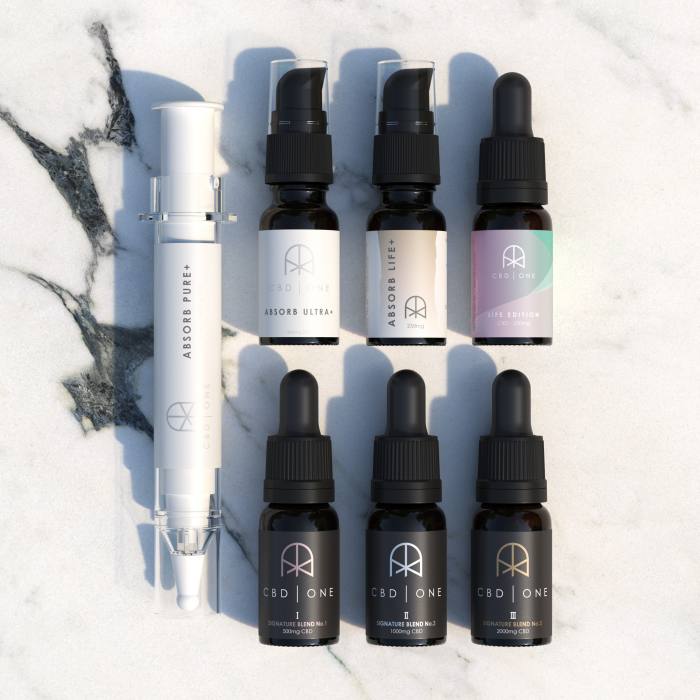
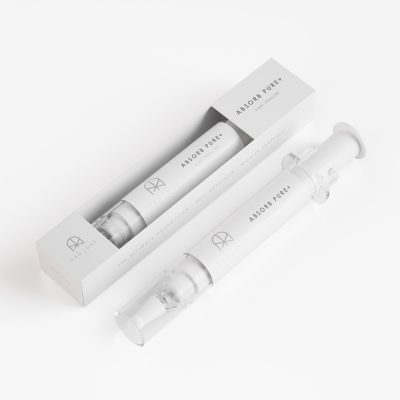
Bioavailability:?Bioavailability | 99% |
CBD content:?CBD content | 800mg | 1600mg | 4000mg |
Cannabinoid spectrum:?Cannabinoid spectrum | Full |
| Daily use: | Once daily |
Best for:?Best for | Powerful water-soluble option |
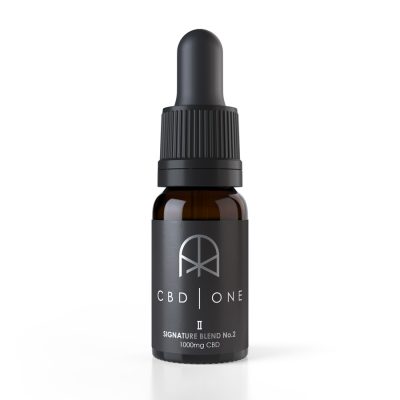
Bioavailability:?Bioavailability | 12 % |
CBD content:?CBD content | 1000mg | 2000mg | 5000mg |
Cannabinoid spectrum:?Cannabinoid spectrum | Full |
| Daily use: | 1-3 times |
Best for:?Best for | All round oil |
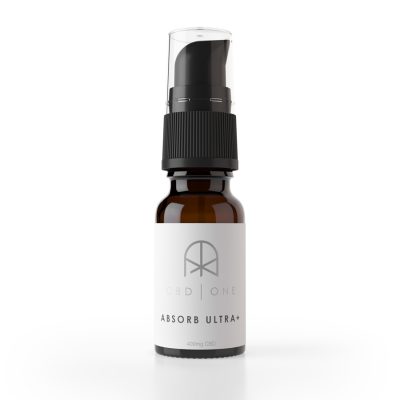
Bioavailability:?Bioavailability | 99% |
CBD content:?CBD content | 400mg | 800mg | 2000mg |
Cannabinoid spectrum:?Cannabinoid spectrum | Full |
| Daily use: | Once daily |
Best for:?Best for | Great all-rounder |
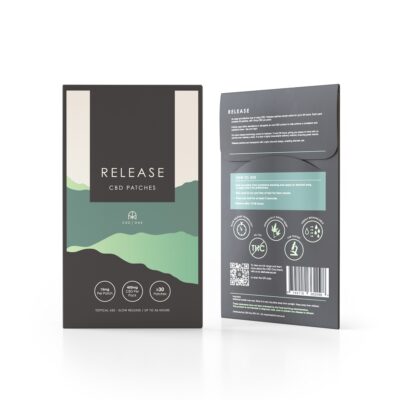
Bioavailability:?Bioavailability | 40%+ |
CBD Content:?CBD Content | 450mg | 900mg | 1350mg |
Cannabinoid spectrum:?Cannabinoid spectrum | Pure CBD |
| Daily use: | Once |
Best for:?Best for | Round the clock super-effective dosing |